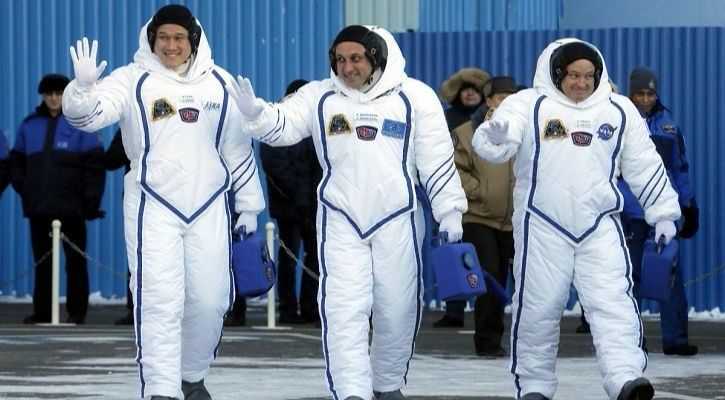Astronauts Grow Taller In Space, But That Isn't The Most Dangerous Things Of Living In Space

Space is an unforgiving place, and it does strange things to your body over time. Japanese astronaut Norishige Kanai grabbed headlines this week when he claimed he grew an astounding 9 centimetres while in orbit, and joked he was worried about fitting back into his suit for the ride back home to Earth.
The thing is, Kanai seems to have made a mistake when measuring himself the first time. After his captain expressed concern over the development, he measured himself a second time and found he had actually grown 2cm and not 9. That meant all was well and all the hubbub was for nothing.
But wait, he still grew 2cm in the single month that he’s been on board the International Space Station. That’s amazing right?! Well it is, but it’s also a documented effect that astronauts on the ISS have experience before. And it has a perfectly logical explanation.
Growing longer because of zero gravity
When in a microgravity environment for a prolonged period of time, astronaut’s vertebrae can expand and relax. Basically, their spines stretch out a little, depending on the person’s height. A 6-foot-tall astronaut can gain up to 5 centimetres, so Kanai’s 2cm is just about average. Once the astronauts return to Earth however, gravity reasserts itself and the height gain is lost in a few months.
In fact, the height gain is the least of an astronaut’s worries. Thanks to zero gravity, astronauts cal lose upto 1 percent of their bone mass every month they spend in space, which can lead to osteoporosis-related fractures. Fluids in their body shift upward because of the lack of gravity, and can cause swelling, high-blood pressure, and vision problems. That’s why the kind of food, medicine, and exercise astronauts partake of are so important.
Then there’s also the fact that living almost isolated and in utter silence can wreak havoc on your psyche, and the lack of a day/night rhythm can mess with your sleep cycles. Last of all is the ever-present cosmic radiation of course, dozing astronauts with much more than they would ever receive under the Earth’s protective atmosphere. This not only raises the risk of cancer, but also damage to the nervous system.
